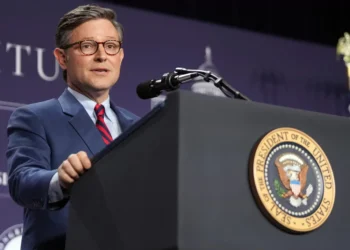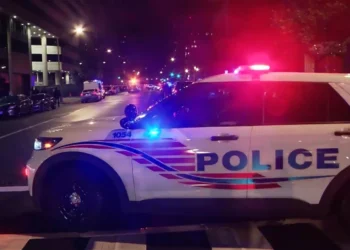The Defense Department is restricting the access of journalists within its walls and requiring them to travel with an escort in certain areas.
Defense Secretary Pete Hegseth said the measures are needed “in the interest of national security” and to “reduce the opportunities for in-person inadvertent and unauthorized disclosures.”
“While the Department remains committed to transparency, the Department is equally obligated to protect [classified national intelligence information] and sensitive information — the unauthorized disclosure of which could put the lives of U.S. Service members in danger,” Hegseth wrote in a memo.
Journalists will no longer be allowed near Hegseth’s physical office spaces and the Joint Staff physical office spaces “without an official approval and escort from the Office of the Assistant to the Secretary of Defense for Public Affairs,” the memo said. They will also no longer be allowed in the Pentagon’s Athletic Center.
Pentagon press members will also be issued new badges with a clearer “press” indicator and be required to complete a briefing form explaining their responsibilities to protect classified and sensitive information.
The Pentagon Press Association, the leading group for journalists working in the defense complex, expressed displeasure with Hegseth’s press decisions. It called them a “direct attack” on freedom of the press and added it was “extremely concerned” about the restrictions.
They denied that concerns about operational security were valid because the press have had access to “non-secured, unclassified” spaces in the Pentagon for decades, including in the aftermath of the 9/11 attacks.
The organization mentioned the Pentagon’s move to evict several news outlets, including the New York Times, the Washington Post, and CNN, from the building. The Washington Examiner took a spot in the Pentagon, along with outlets such as the Free Press and the Daily Caller.
The PPA said it still welcomed a conversation with the Pentagon over operational security, which it has not had. They criticized Hegseth’s “failure to brief the press” within the administration’s first 100 days.
TRUMP ADMINISTRATION PLACES DOZENS OF NATIONAL SECURITY COUNCIL OFFICIALS ON LEAVE
The press restrictions came after the Pentagon suffered several leaks in recent months, leading to the firings of several officials. Hegseth appeared to leak classified information in a Signal chat when a journalist was inadvertently added in March.
The action could be a move to punish the press that have actively reported on the several leaks at the Pentagon, possibly sparked by shaky handling of classified information and Hegseth’s use of the unclassified Signal.

















